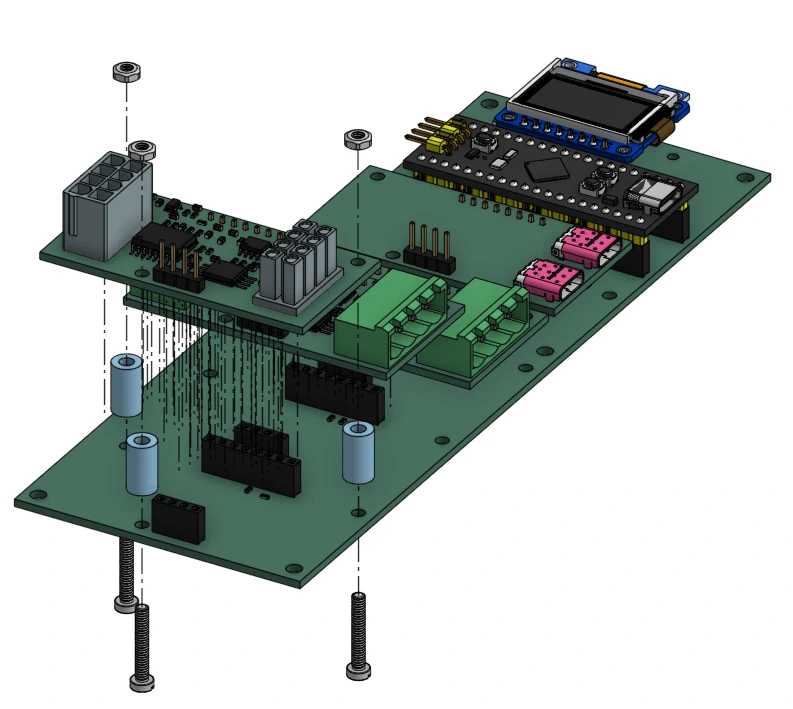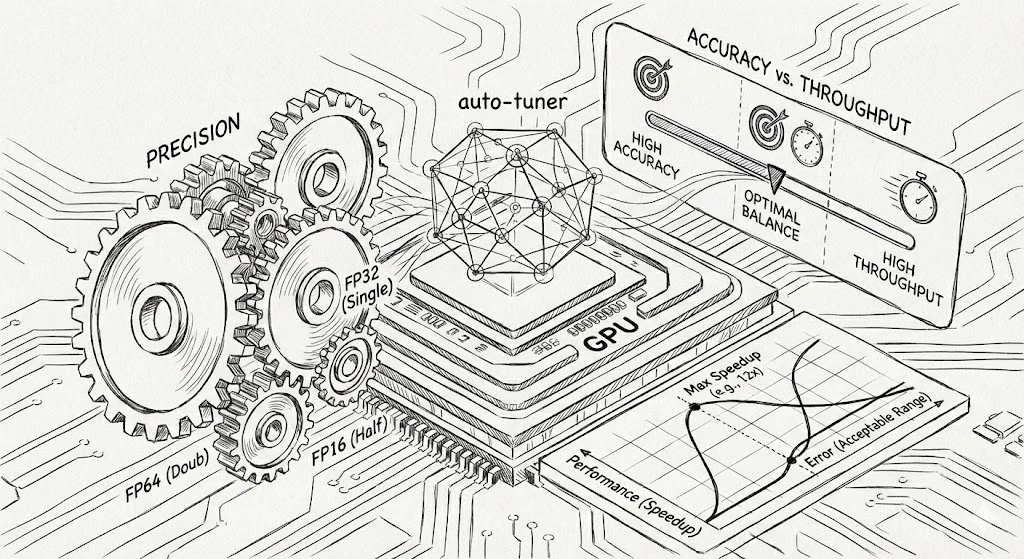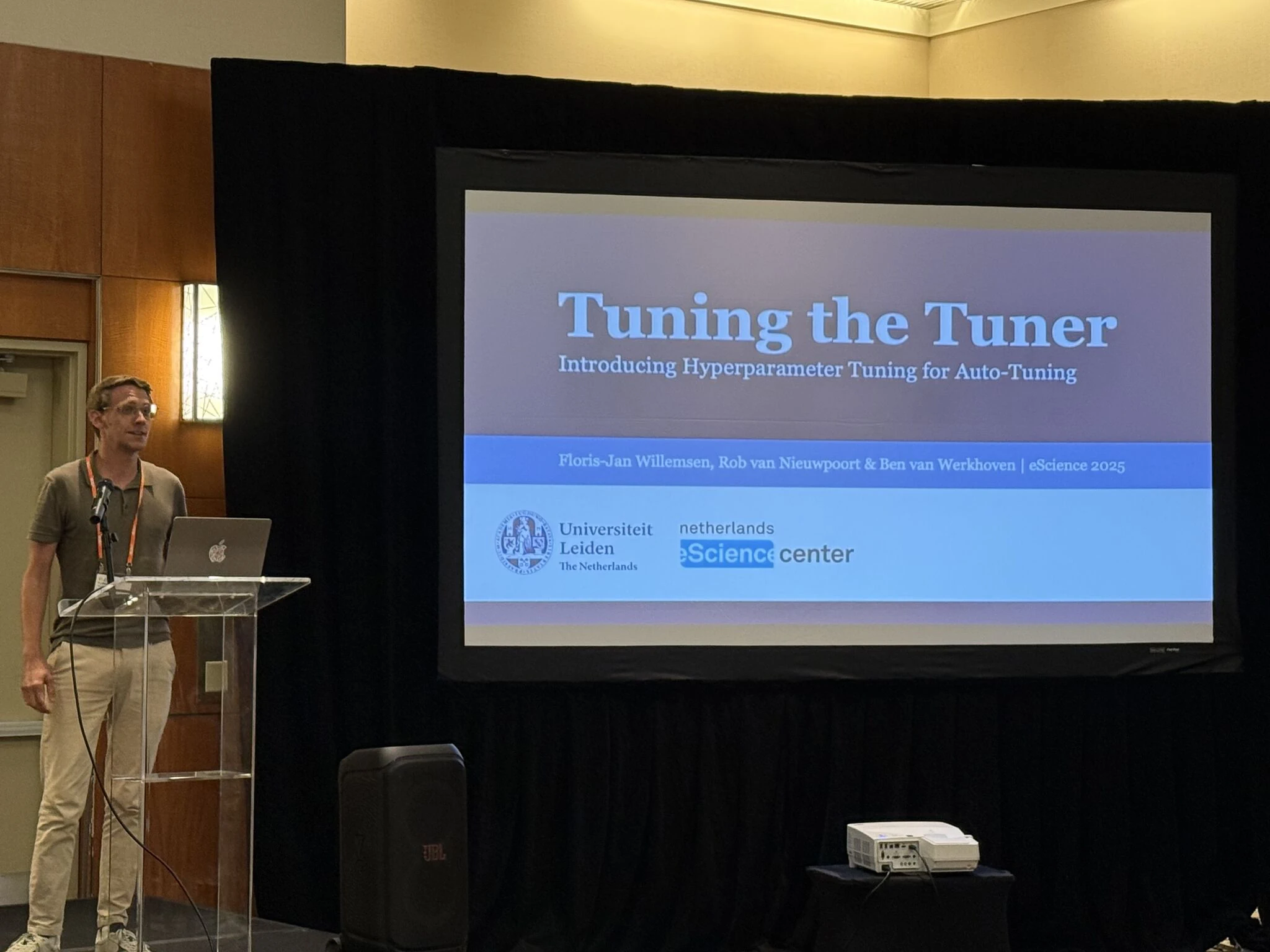May 13, 2025 – My co-author Steven van der Vlugt presented our paper titled “PowerSensor3: A Fast and Accurate Open Source Power Measurement Tool” at the International Symposium on Performance Analysis of Systems and Software (ISPASS) in Ghent, Belgium.
This paper is the result of a long-term collaboration with John Romein, initiated over five years ago through the bachelor’s thesis project of Quinten Twisk, who interned at the Netherlands eScience Center. Progress continued intermittently, gaining significant momentum as additional colleagues from ASTRON and the Netherlands eScience Center joined the effort.
PowerSensor3 is a compact, open-source device capable of measuring the power consumption of other devices with exceptional accuracy and high temporal resolution. To capture the current drawn by a device, PowerSensor3 intercepts the power supply cables. While straightforward for standalone devices (such as entire computers), this becomes significantly more challenging for components like PCIe devices, which typically draw power both from the motherboard via the PCIe slot and through additional cables from the power supply. By making specific modifications to the PCIe riser cards in the DAS-6 computing cluster, we’ve successfully enabled PowerSensor3 to measure GPU power consumption with unprecedented accuracy.
This precise measurement capability is instrumental for developing new strategies aimed at reducing the carbon footprint of scientific computing and AI. With detailed insights into power consumption, we can optimize individual GPU kernels to enhance energy efficiency significantly. In fact, PowerSensor3’s accuracy is so refined that it detects even subtle changes in power consumption during the execution of a single GPU kernel.
Moreover, as discussed in our paper, we’ve integrated PowerSensor3 with Kernel Tuner. This integration enables the tuner to systematically record energy consumption for all kernels it evaluates, allowing optimization strategies to focus either on energy efficiency or execution performance, and explore the trade-offs between these two objectives.
The full abstract of the paper is given below.
Abstract
Power consumption is a major concern in data centers and HPC applications, with GPUs typically accounting for more than half of system power usage. While accurate power measurement tools are crucial for optimizing the energy efficiency of (GPU) applications, both built-in power sensors as well as state-of-the-art power meters often lack the accuracy and temporal granularity needed, or are impractical to use. Released as open hardware, firmware, and software, PowerSensor3 provides a cost-effective solution for evaluating energy efficiency, enabling advancements in sustainable computing. The toolkit consists of a baseboard with a variety of sensor modules accompanied by host libraries with C++ and Python bindings. PowerSensor3 enables real-time power measurements of SoC boards and PCIe cards, including GPUs, FPGAs, NICs, SSDs, and domain-specific AI and ML accelerators. Additionally, it provides significant improvements over previous tools, such as a robust and modular design, current sensors resistant to external interference, simplified calibration, and a sampling rate up to 20 kHz, which is essential to identify GPU behavior at high temporal granularity. This work describes the toolkit design, evaluates its performance characteristics, and shows several use cases (GPUs, NVIDIA Jetson AGX Orin, and SSD), demonstrating PowerSensor3’s potential to significantly enhance energy efficiency in modern computing environments.
Citation
Steven van der Vlugt, Leon Oostrum, Gijs Schoonderbeek, Ben van Werkhoven, Bram Veenboer, Krijn Doekemeijer, John Romein “PowerSensor3: A Fast and Accurate Open Source Power Measurement Tool” International Symposium on Performance Analysis of Systems and Software (ISPASS 2025) DOI: https://doi.org/10.1109/ISPASS64960.2025.00028 preprint: https://arxiv.org/abs/2504.17883







